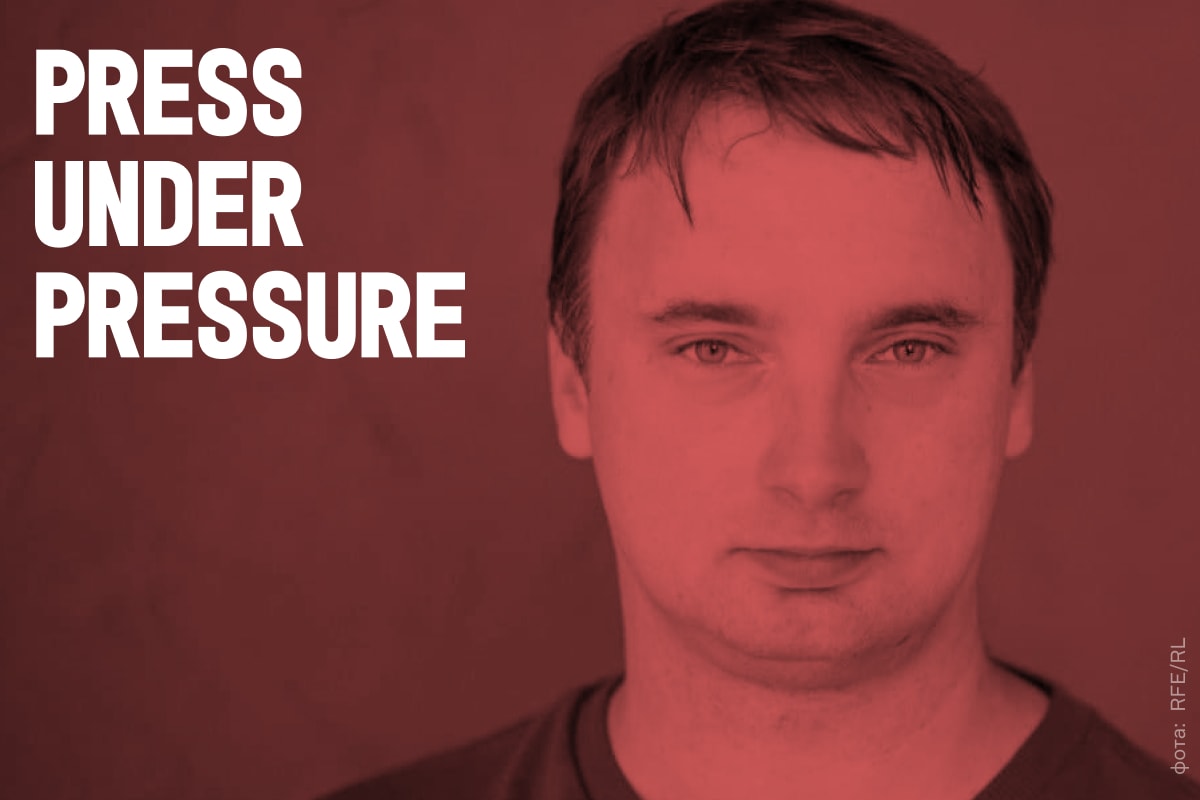
Andrei was accused of ‘creation of or membership in an extremist group’. The court sentenced the journalist to imprisonment in a penal colony for a period of 6 years.
Several days prior to his detainment, Andrei told his friend why he stayed in Belarus regardless of the danger and asked to make his statement public in case of his detainment (see excerpts from the letter at the end of this article).
The journalist’s friends, colleagues and wife speak about how he is coping and what he’s communicating from behind bars.

I think the story about how we met is a story about the wonderful gifts your life can give you if you live according to your conscience, when you do what you earnestly want to do. Belarusian language and literature had never been just school subjects for us. Rather cultural heritage, expression of the soul of the people. It’s no surprise it was the Faculty of Philology that brought us together.
I know from stories that Andrei imagined himself as a media person since school. He took part in school events as a young journalist, he even presented on TV. He came up with his own radio station, a name and a break bumper for it. Life and technical progress made adjustments to that, but he still felt in his own place, he knew his work was important and needed.
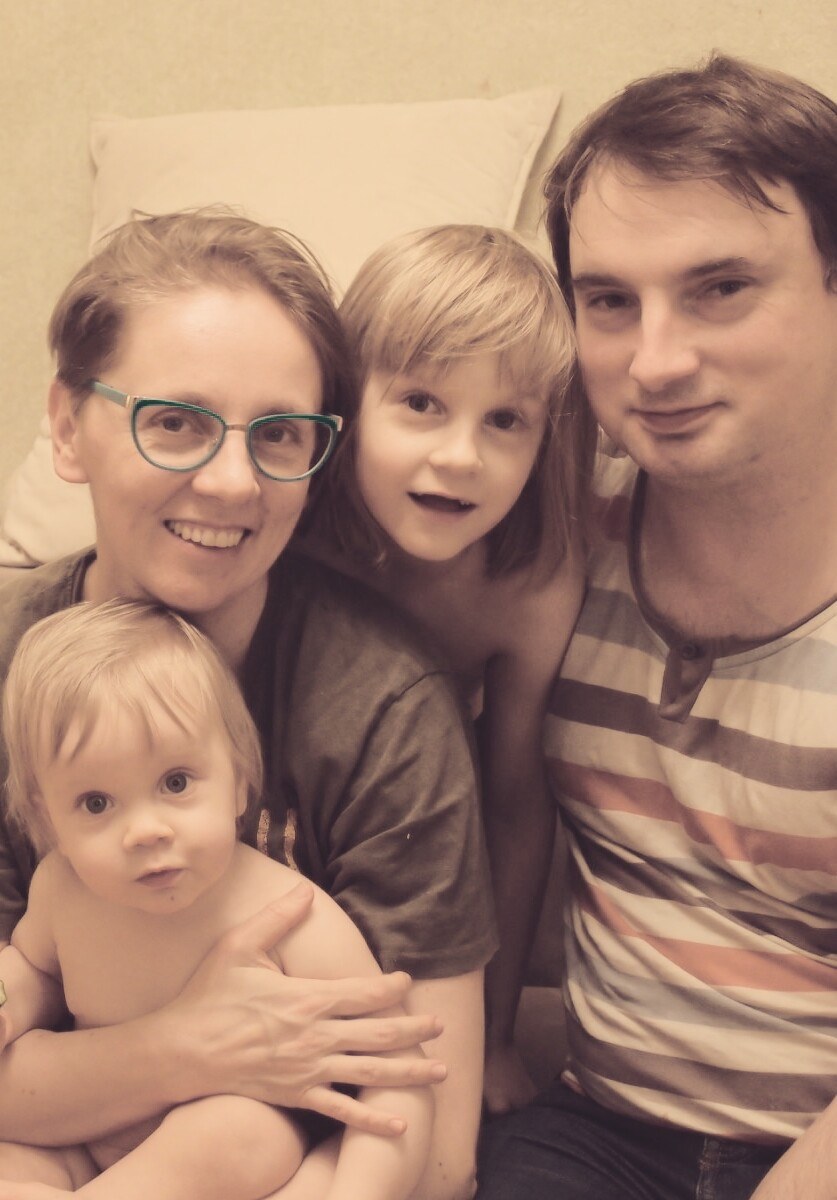
It’s hard to find just a handful of words to describe the person who has been the closest and the most important to me for half of my life. There’s too much data and I can’t make a system out of it. But I think he could. Because he has an opinion about everything, there’s order inside his head and in the house. With him, our kid wouldn’t try cat’s food as he does with me (Smiles).
I haven’t met anyone as complete, reliable and true as my beloved husband in my whole life. It is manifested even in the smallest of things. Say, his favourite meals haven’t changed in years. I expect he will ask for potato pancakes or fried potatoes as soon as he gets released.
His reliability and thoroughness show in various force majeur situations: he always has a plan B. For example, if we went for a trip and the weather got worse. We went to Rybakivka once for a holiday and couldn’t swim because of the cold current. So we went hiking. The nearest village was several kilometers of wild paths away. My thrifty husband had a local map so we didn’t get lost and enjoyed the unique Ukrainian landscapes, high skies, wide plains, extraordinary plants and craft beer. We will return there for sure.
He worked from home lately. He used to say, ‘I’m at work,’ closed the door and asked not to disturb him. I used to look up on him in the evening asking, ‘Are you home yet?’ And he would say, ‘No, on my way.’
We saw another ‘remorse’ video once, and we know how they get those out of people including threatening their families. Andrei said, ‘If that were me, I would say anything they asked me…’ And I said, ‘Take care of your health.’
To swing his legs on his way home on a bicycle is both a way to rest and to reload for Andrei. He ordered some gear for winter cycling prior to his arrest and was worried whether it arrived. Pity, it didn’t get to be used that season.
Andrei’s sane approach to life is in a peculiar way combined with his ability to find a positive side to anything and hope for the best. In his letters, he complains about muscle pain due to the lack of physical load he is used to, but he then immediately writes that he will experience the same pain once he returns to sports.
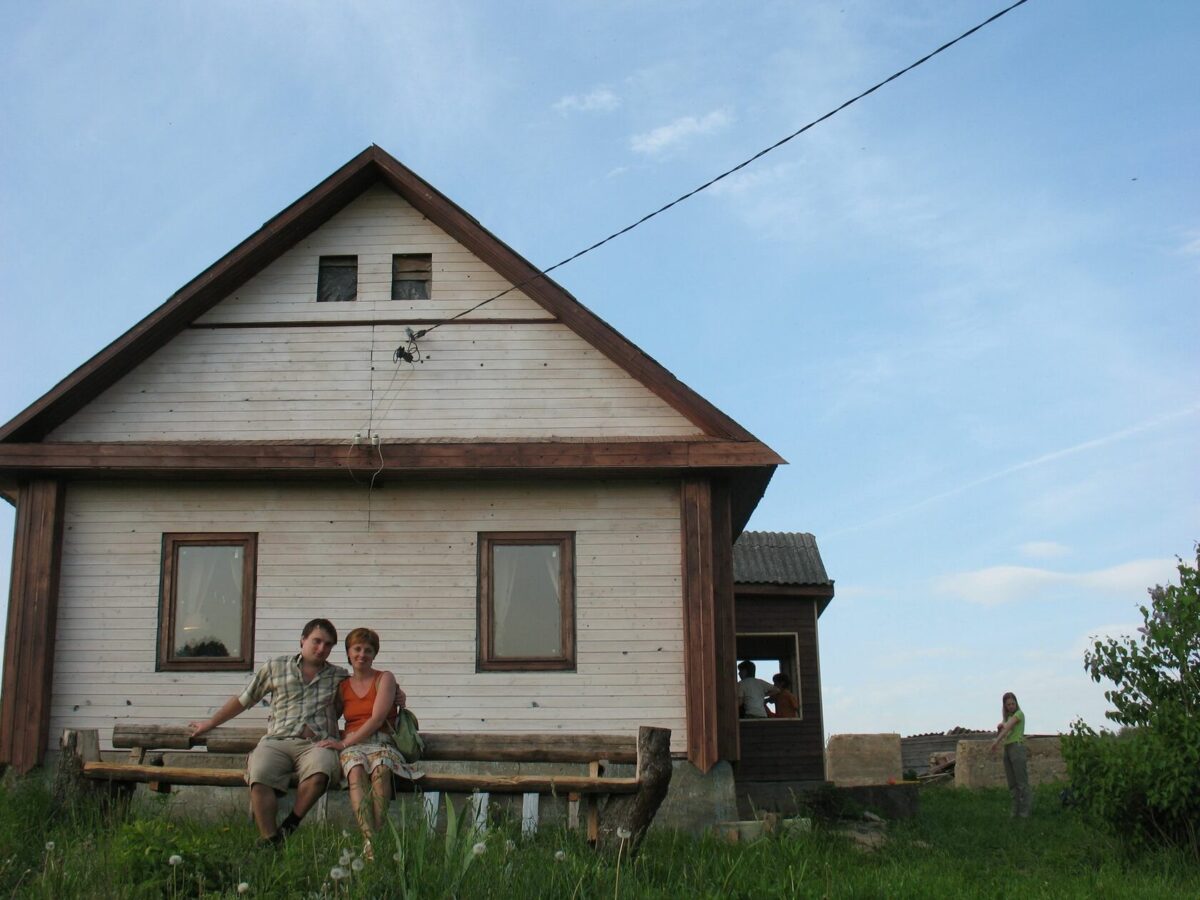
Since the first days of his detainment, Andrei has been worried about us, how we were doing, whether we worried too much. He assures us he is fine and healthy every time he has an opportunity.
Sometimes he doesn’t receive my letters with children’s photos enclosed for several weeks. He is sad about that, but receiving parcels from us and knowing we are home gives him some consolation. I try to diversify the usual set of products with something pleasant and unexpected. Andrei has recently received another parcel from a woman he doesn’t know. He sends his gratitude for the food and envelopes.
He keeps balance, supports us. He is worried about children, Yanina’s learning and how Matvei is growing up. What worries him the most and gives the most pain is that the children grow up without him and we don’t know how long this will last. He is preparing for transfer because he has no hopes for a quick release. But at the same time, he never forgets to greet us on holidays, send us compliments and remind us how happy he is to have such a family.
I’ve finally seen my beloved husband for the first time in four months. Us talking through a muffled phone handset with bars and double glass separating us was one of the most striking impressions in recent years and provoked a ton of controversial emotions.
Andrei is holding up, complaining about the local ‘barbershop’ and the lazy guards preventing him from having a portion of fresh air daily. However, the company is fine in general. He is worried about us being hurt and that our children can’t see him. He doesn’t place much hope in the fairness of our courts and their judgements but doesn’t change his position.
His conscience allows Andrei to sleep well at night and feel himself as an honest man. He also supports us as much as he can. He jokes, gives advice; he sent us a new poem he wrote. And he hopes to see us soon without a glass wall between us. Even if it’s in prison.

Andrei came to work with us quite a long time ago. He posted articles on the website at first and then became an editor. His working experience includes Naša Niva and Komsomolskaya Pravda. He digs deep, checks all the references and links every time, he is thorough with sources. He is a bore in a good sense. Very demanding about everything related to his job.
What has always surprised me was that being a young man he was already so much pro-Belarusian, knew Belarusian culture and literature so well, he was perfectly literate. Still a teenager, he followed Belarusian rock music and culture, he read a lot, knew trends in literature and contemporary writers.
Andrei was born in Viciebsk and came to Minsk to study at the BSU Lyceum. He lived at the dormitory in Kastryčnickaja Street and became independent early. The Faculty of Philology, linguistics were his dream. And he pursued it: after graduating from the Lyceum, he enrolled in the Faculty of Philology.
Andrei stands up for everything Belarusian: he speaks Belarusian only; he has two Belarusian-speaking children. When Yanina was born he was so happy, we celebrated her birth, and now she is in the second or the third grade. And there is young Matvei who is almost three years old. Andrei met his wife at the Faculty of Philology, too. They are a cool Belarusian family. Andrei is strict and serious and Alesya is funny, always smiling.
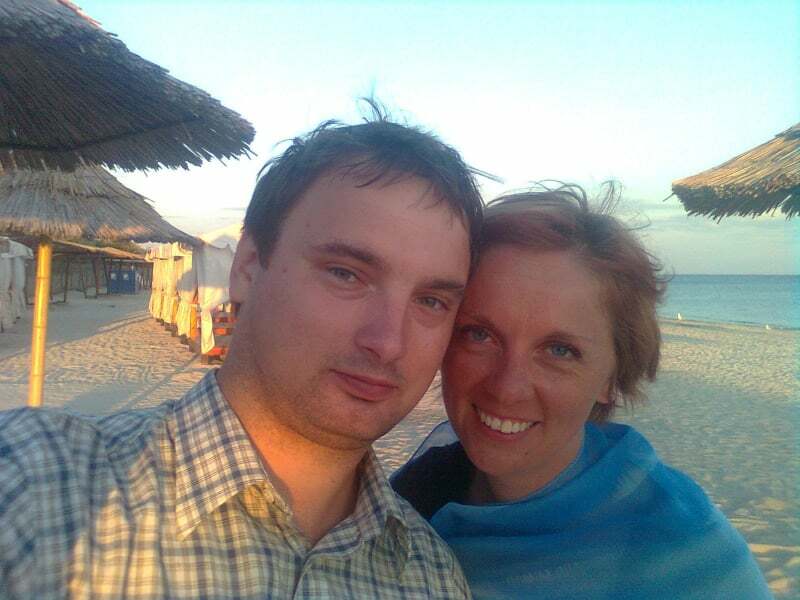
Andrei is very into cycling. I have no idea how long and wide he has cycled, but it seems everywhere. He has once been in my neighborhood and told me, ‘Traffic lights are placed wrong, curbs are wrong.’ I am a bicyclist, too, but he knew everything about cycling and related stuff, he was a cycling activist, he fought for it, wrote letters requesting improvements.
I remember I got interested and asked him, ‘So how many curbs should there be?’ And he said, ‘Zero. There should be no curbs along the cycling path.’ And I think it’s his great achievement that Minsk has become more convenient for bicyclists.
Andrei didn’t work in the field, he was a desk editor. So this case against him is a mystery for me. It seemed they rather hunted correspondents. But this persecution has no logic whatsoever.
After he got detained, he was placed in a cell at the detention centre in Akrestsina St. with his acquaintance who later told Andrei was stunned and scared and depressed at first but then recovered.
He is in better moods now. Andrei met his wife and mother. Through a glass wall.
Andrei writes letters to his children, to his wife. He discovered a new talent in prison: his wife sends him blank postcards with his children’s drawing and he writes short funny poems on the topic of a postcard and thus communicates with his children.
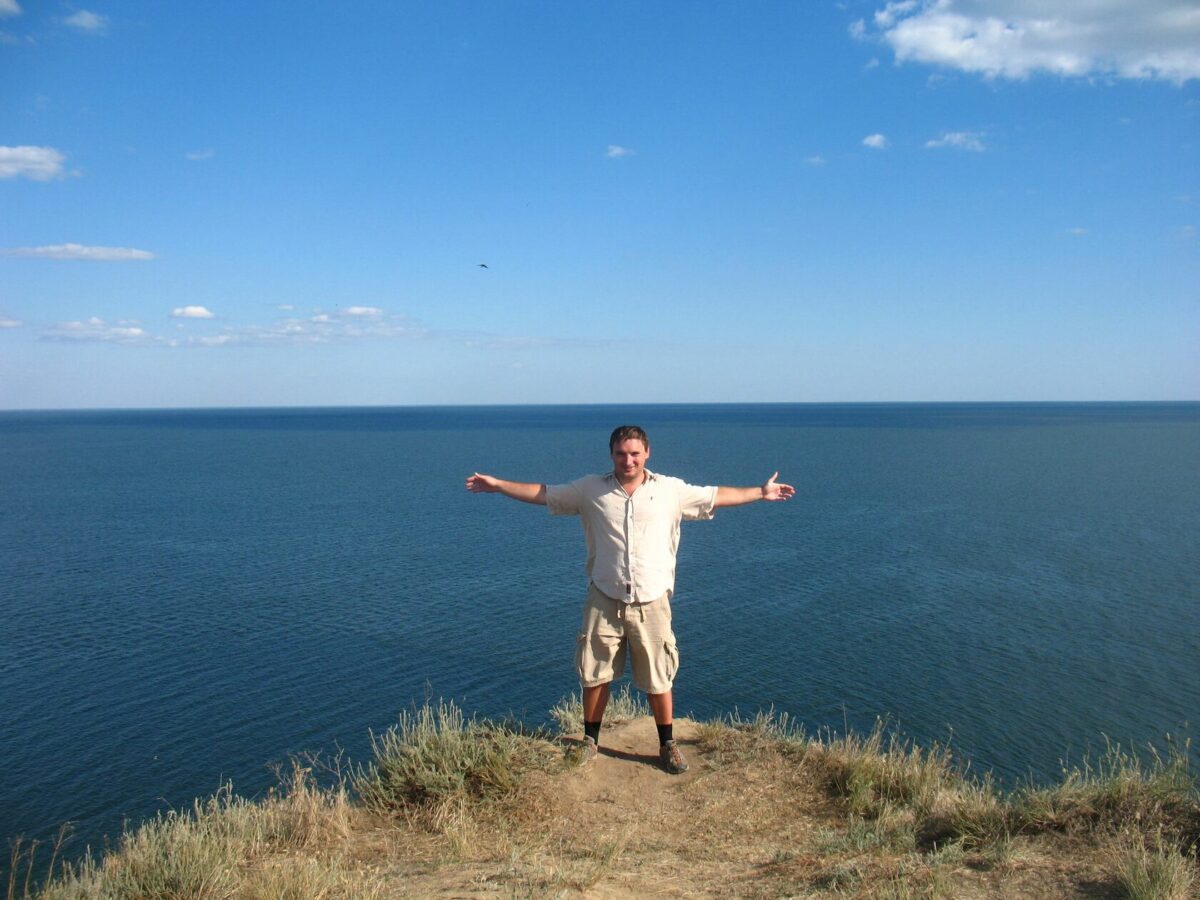
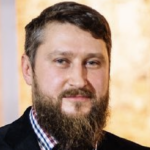
I met Andrei a very long time ago, when we were students. It was in the early 2000s when we worked at Naša Niva together. Back then, I saw Andrei not as a journalist, but as a person performing his duties in line with the education he received at the Faculty of Philology of BSU.
And it was a revelation for me: I saw a man who was completely immersed in everything Belarusian, a man who spoke Belarusian, wrote Belarusian, gathered people of Belarusian culture around himself, created a Belarusian environment. Moreover, Andrei stood at the roots of Belarusian articles on Wikipedia, he wrote a huge number of them.
We used to share a rented room once and I could see how diplomatic and flexible he was. It was in a building in Esenina Street, one of the longest residential buildings in Minsk where several villages affected by Chernobyl were relocated. Once, Andrei couldn’t open the door to our vestibule and as soon as he managed to it turned out the reason was our neighbor who fell asleep drunk on potatoes. And you have to know Andrei Kuznechik who smiled and talked sense into the man and didn’t make a scandal. For me, it was top diplomatic skills and calmness.
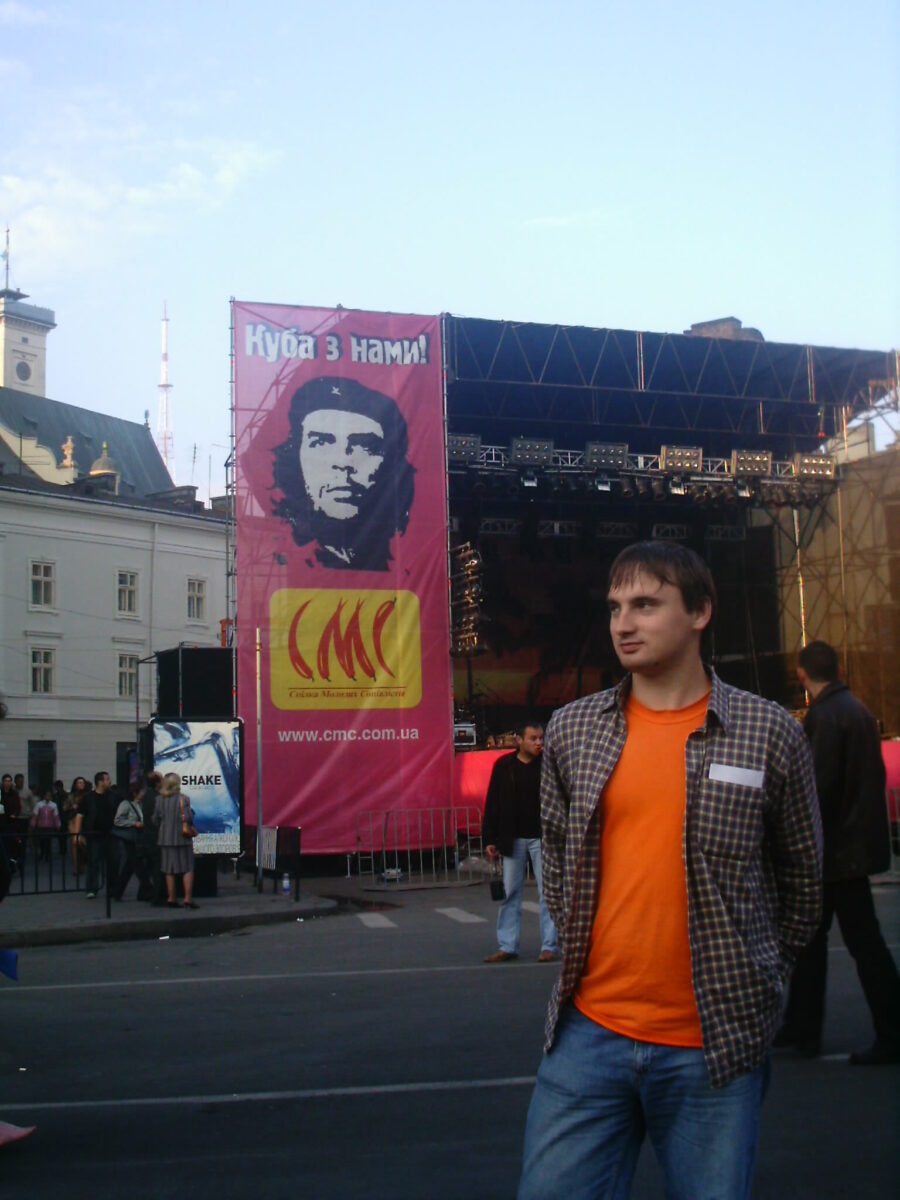
Andrei is very much into bicycling. He was one of the founders of the cycling movement in Belarus: he cycled, created routes, photographed, filmed videos of where one can travel on a bicycle. Andrei has travelled by bicycle his whole life and not once cheated on a bicycle with a car. He even cycled to his wife’s hometown, Biahoml, along the Polack road. He could easily cover 200 kilometers on his bicycle in any weather.
He is a man of many talents who loves Belarusian music, among other things, and collects it. Such as, early popular Belarusian songs.
Andrei’s main features are devotion, stubbornness. And he is a great romantic.
Everything he does in his life grows from the heart. He is probably the only trained translator from Slovenian into Belarusian language (apart from his teacher). Selecting a language which almost nobody uses must be out of love, must come from the heart, it’s not about being pragmatic or calculating.

We met about five years ago and remained virtual friends for a long time. We met in person through our mutual passion, books. I wrote about a book I’d love to have from time to time. Thus, I’ve been looking for Anatol Sys’ ‘Lyon’ collected works for a long time; it has become a bibliographic rarity already. When I almost lost hope, Andrei wrote to me, ‘I have it digitized, so I can give you the hard copy.’ I think that was the time we went offline.
I can’t say we were close friends, but we’ve always cared about each other. Sadly, we couldn’t make time to meet for a cup of tea. I’m very sorry about that. When I return home and when Andrei is released I will invite him for that cup of tea and he won’t be able to say no.
I’ve always been happy to have Andrei comment on some of my materials. He is a very light person. Even when he just leaves a comment it’s very nice. I miss that a lot now. I keep thinking, ‘He would comment on this. I’d like his opinion on that.’
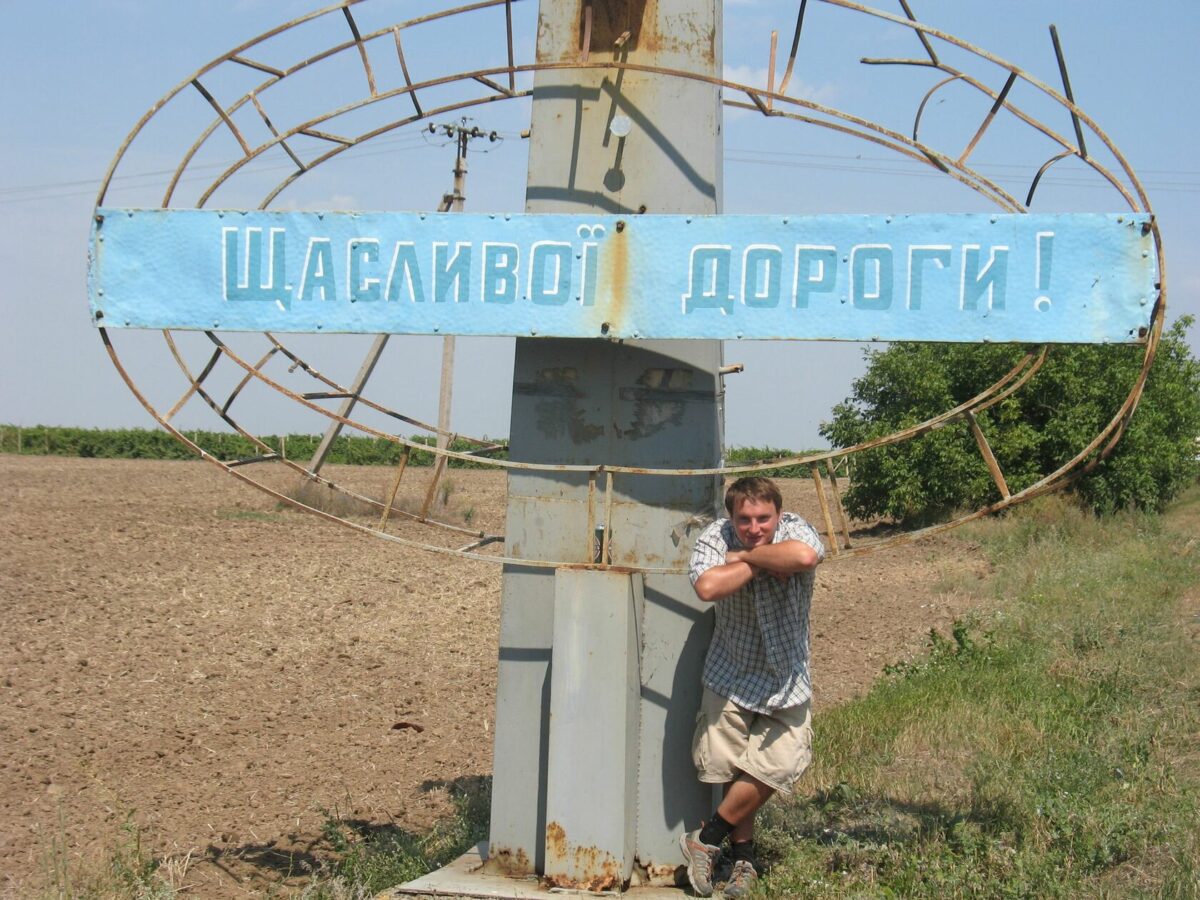
Andrei is Belarus-centric. It’s almost his basic feature. He is also very kind and candid.
I don’t know anyone who would say bad or even neutral things about Andrei. It seems everyone loves him. It is extremely rare.
A while ago, writer and editor Hanna Seviarynets published her book ‘Three Onegins’, three translations of Pushkin’s ‘Evgeny Onegin’ into Belarusian. I wanted to have that book but it could only be ordered with a bank card payment which I didn’t have. So I turned to Andrei, ‘Could you help me? I’ll refund you.’ When the book was published he brought me a copy and took no money for it. He said, ‘I can’t take your money. When my kids grow up and get interested in literature you’ll be able to give this book to them.’ I said I’ll do so and I still intend to keep that promise.
Andrei is a role model for me in many aspects. I’m a little younger than him and sometimes, when I look at him, I think, ‘I want to be like Andrei when I grow up’.
Andrei wrote to me the night before he was detained. As though he knew. Prior to this I had a vivid discussion on Facebook: I wrote that activist Pavel Batuev was detained and there it went—some wrote, ‘Why didn’t he flee?’, others, ‘Good for him, he didn’t leave. Way to go.’
Andrei read those comments and then wrote to me, ‘I’ve read everything they wrote about Batuev and I decided to state my position, so I leave you this letter.’
In his letter he explained that everything Belarusian is essential for him. He had been working on the Belarusian cause since childhood, he studied at the Faculty of Philology for that. He wants to bring his children up in Belarusian environment exclusively, he doesn’t want to leave the country, to lose connection to his Motherland and bring them up with values contradicting the Belarusian ones.
That letter is the letter of a complete person, of a person who has a very good understanding of what he does and why.
Why did he leave me the letter? We trust each other. It is possible I would turn to him under the same circumstances. So it was no surprise to me.
Authorities persecute everyone these days. People like Andrei, with a solid pro-Belarusian position, scare the regime the most. They’re like a red cape to a bull. The authorities want to eliminate all our native things, everything Belarusian. So clearly the first strike falls on these people. Despicable logic.
Andrei is a person I can’t imagine behind bars. He is noble in the best sense. I can’t imagine what he is doing, how he is dealing with the guards. I can’t see how Andrei, Novy Čas editor Oksana Kolb, BelaPAN editor Iryna Leushina deal with them. I can’t turn my head around how these worlds collide but I know these people overcome these difficulties with honour. It’s horrible that the best of our people have to go through it every day.
2. ‘Under the present circumstances, I consider it less of a trouble to serve a fake sentence in prison than to leave my homeland for an uncertain time (eternal even) (although I might be fatally wrong about the degree of repressions).’
3. ‘I think children brought up in a non-Belarusian environment will bear the values of that environment. And the only place on Earth where we have our environment, where we can create it and rely upon it is Belarus.’
4. ‘I can see that the neighbouring countries create their historical myth on the grounds often very different or even contradictory to the Belarusian one.’
5. ‘I can see that the neighbouring countries are facing challenges which may demand not lesser sacrifice than the situation demands from Belarusians today.’
Terms and conditions
Partial or full reprint is permitted subject to following terms of use.
An active direct hyperlink to the original publication is required. The link must be placed in the header of the reprinted material, in the lead or the first paragraph.
Reprints, whether in full or in part, must not make changes to the text, titles, or copyrighted photographs.
When reprinting materials from this page, attribution must be given to the Press Club Belarus “Press under Pressure” project, collecting evidence of repression against independent media and journalists in Belarus.